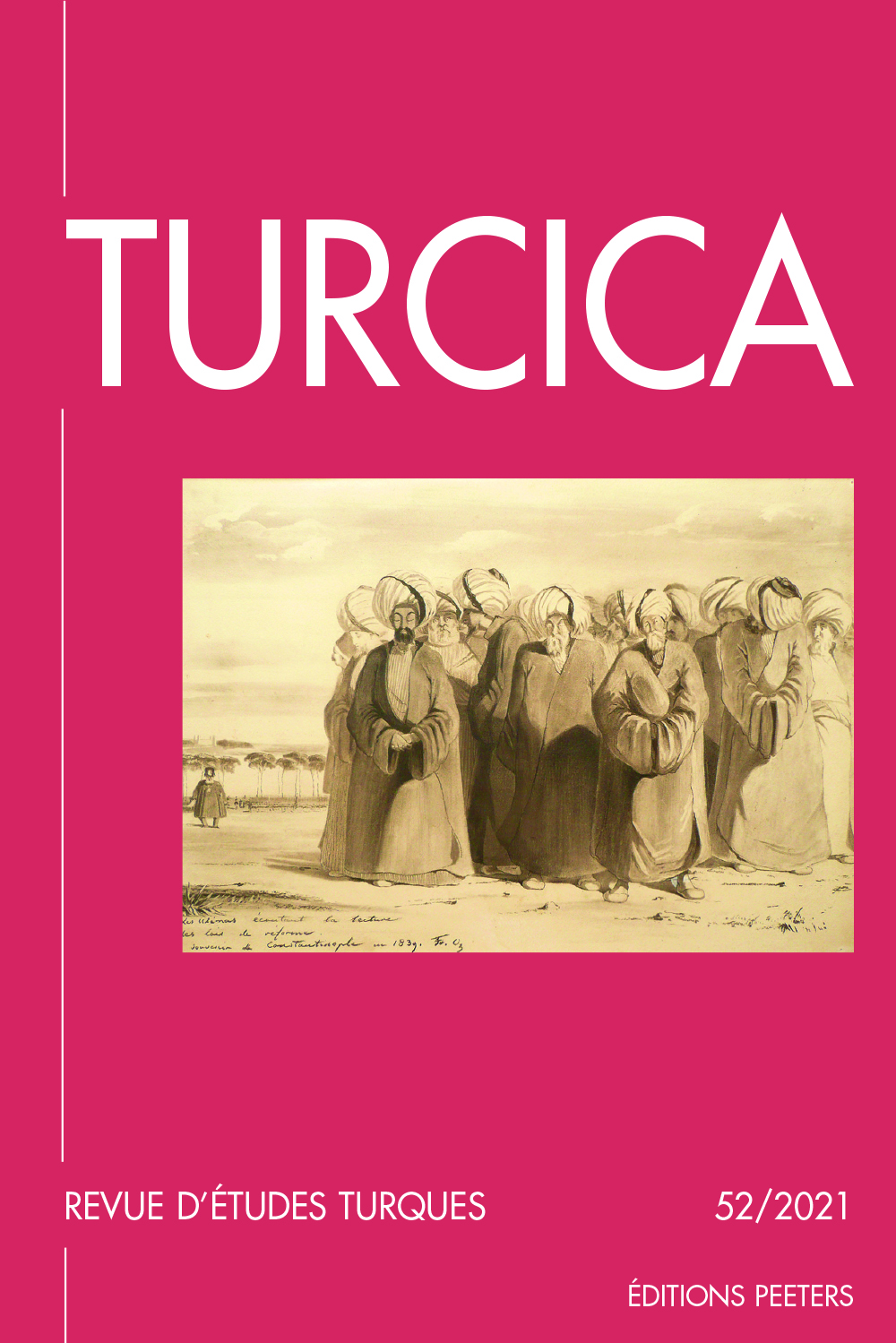 previous article in this issue previous article in this issue | next article in this issue  |

Preview first page |
Document Details : Title: The Janus Face of Kātib Çelebi Subtitle: Reflecting on the Ottoman Saddle Period Author(s): ZEMMIN, Florian Journal: Turcica Volume: 50 Date: 2019 Pages: 327-354 DOI: 10.2143/TURC.50.0.3286579 Abstract : With an interest in genealogies of modernity, this article analyzes Kātib Çelebi’s usage of concepts of collective life and history, highlighting their Janus-faced nature, which can moreover indicate conceptual transformations with potential significance for the Ottoman saddle period. I first introduce the metaphor of the saddle period, coined by Reinhart Koselleck to depict the transitional period between premodernity and modernity. Furthermore, I substantiate the productive potential of conceptual histories of Near Eastern languages, but also point to the hermeneutical pitfalls inherent in this avenue of research. Building on extant research, I then show the sense in which Kātib Çelebi pioneered a novel employment of devlet as referring to the whole social collectivity and also foreshadowed the collective singularity of history, with its desacralizing implications. On this basis, I suggest it is worthwhile to further explore the possibility that conceptual transformations in the seventeenth and eighteenth centuries later facilitated the conceptualization of the modern order under the influence of European hegemony. Partant d’un intérêt théorique pour les généalogies de la modernité, cet article analyse l’usage par Kātib Çelebi des concepts de vie collective et d’histoire, soulignant la nature janusienne de ces concepts. Après avoir présenté la métaphore de période de seuil conceptuel, forgée par Reinhart Koselleck, je plaide pour l’intérêt de l’histoire conceptuelle des langues du Proche-Orient, tout en préconisant la circonspection face aux pièges herméneutiques que cette direction de recherche peut comporter. J’examine ensuite, en prenant appui sur des recherches existantes, comment Kātib Çelebi introduit un nouvel emploi de devlet, se référant à l’ensemble de la collectivité sociale, en même temps qu’il préfigure le singulier collectif d’histoire, avec ses dimensions de désacralisation. Je suggère ainsi qu’il serait utile de prendre en compte la possibilité de l’existence, au XVIIe et au XVIIIe siècle, des transformations conceptuelles, qui ont facilité la conceptualisation ultérieure de l’ordre moderne, sous l’influence de l’hégémonie européenne. |
 |


